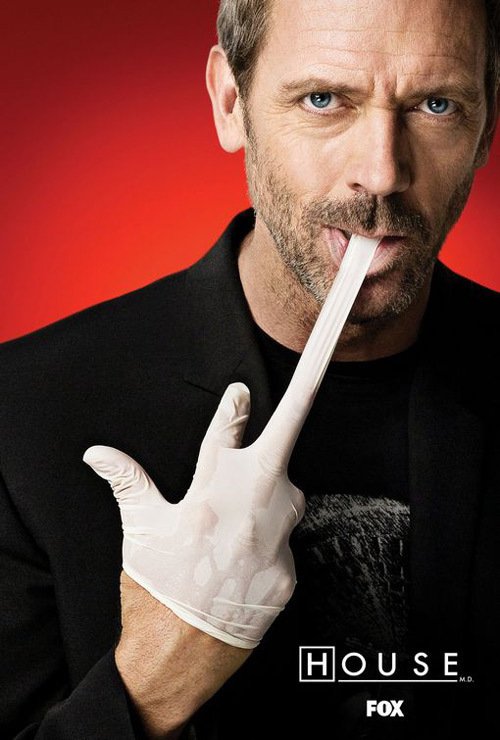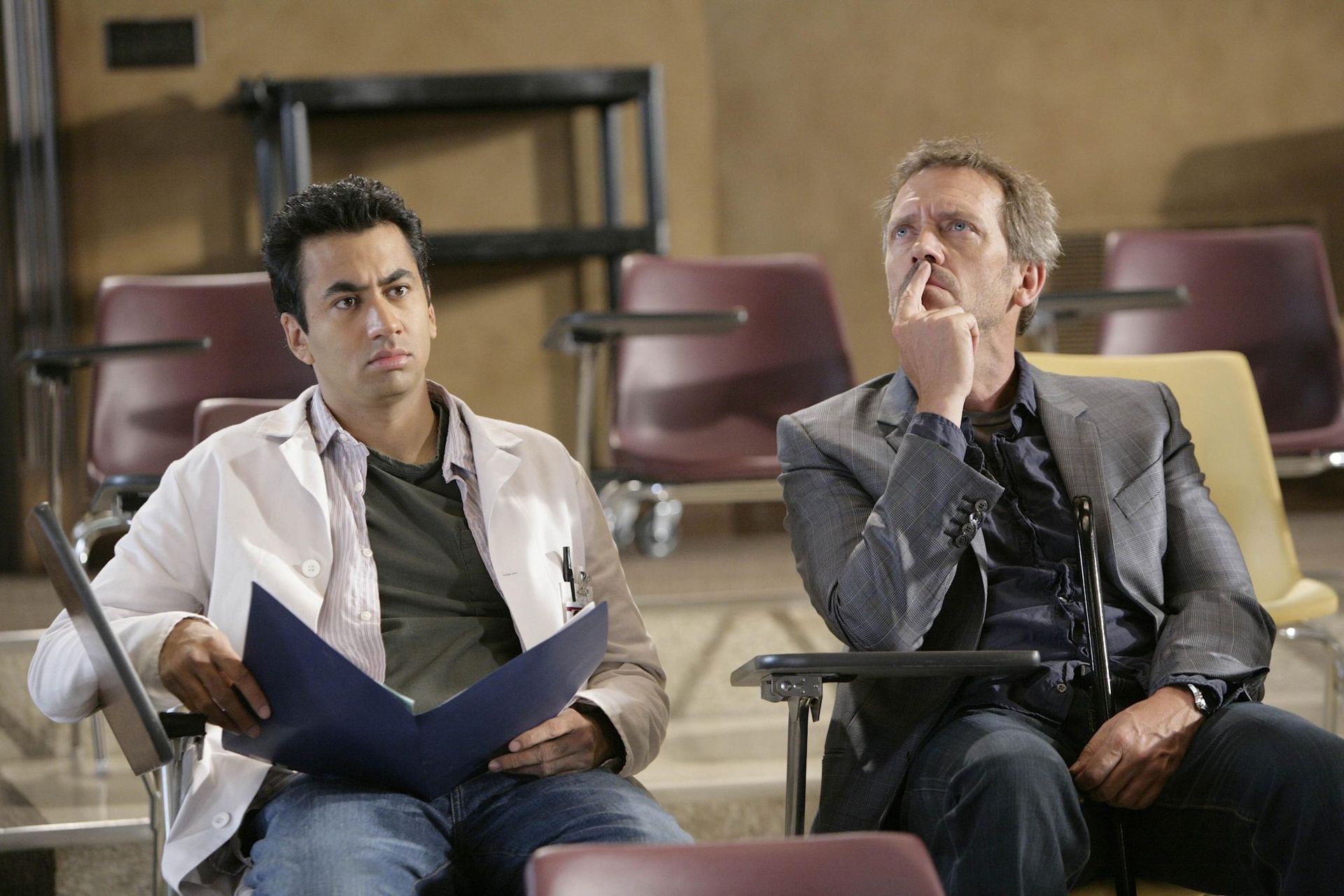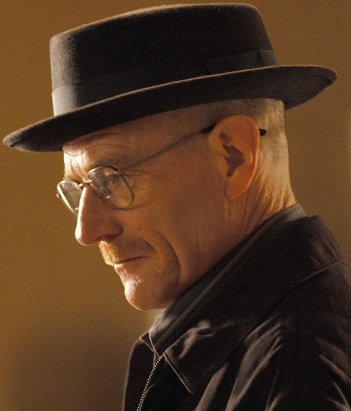The Indestructible Men – Breaking Bad, House and the Superhuman Protagonists
*SPOILERS*
I want to talk about Breaking Bad and House, two television series that have meant a lot to me over the past ten years and two series that utterly disappointed me in their denouement. My issue is the indestructible lead character: someone that cannot die or lives above what those plebeian supporting cast members know as death. They are essential to the lifeblood of the story and, therefore, the story supports them as an almost superhuman figure.
The difference between release and reward

Gregory House possessed almost superhuman intuitive-empirical skills. He was like The Mentalist on Vicodin. And there was something satisfying there. The selling point of the show, in fact. We could be introduced to a mind-numbing list of symptoms, a surely fatal result looming just over the horizon – but then comes the grizzled, gravely-voiced detective who can dissolve all of the mania surrounding the mysterious disease into a simple diagnosis. He draws from the background that we’ve so flippantly ignored and feeds it to us on a silver platter.
It’s fitting that the show was on FOX.
But it was just the dopamine boost we needed after a particularly stressful day where we hardly solved all the problems of the world only to come home and see someone do it for us. Not only that but they included me in on the goods. The shows’ shots inside the conference rooms certainly made me feel like I’d saved a life.
And to do it with such a loveable assholish wit was a bonus. House was given a flaw, of course, a Kryptonite in the form of a drug addiction. But that was necessary. Just so we would think he was still somewhat human.
Walter White provided a similar release, although it was due to a sense of relief and not reward. Watching White’s slow fall from middle class mise-en-scène to surreal drug kingpin modus vivendi lets us reap the benefit of a vicarious immersion in dangerous decadence while keeping enough distance to save us all the messy problems of jail, death and murder.
Added to this was the unique millennial experience of seeing the dad from Malcolm In The Middle reveal the sordid truth behind his successful career in the late 90s. (How could Frankie Muniz not have seen this?)
The show had the incredible character-building that has built empires out of AMC dramas, but, like House, it still runs on the propulsion of the lead character. One Walter White. Vince Gilligan gave me a glimpse into an alternative society that lives right alongside mine. That looked just like mine. That had a lawn, a car, kids and even owned a car wash. Its structure is supposedly anti-thetical to my middle class enclave. The beauty of Breaking Bad was that it revealed, as the two societies merged closer together (around the person of Walter White), that they were not so different.
This was the ingenuity of both shows, in fact.
Revealing the shadows in the light.
The Dark Half

Walter White’s mere presence introduced a centrifugal element into the suburban milieu as a kind of sociological experiment: can a society centripetal in essence sustain one that it is radically centrifugal?
Slowly the dark half of the suburbs emerged. Seemingly nice, normal people become kleptomaniacs, meth addicts and drug lords.
In House, the stable character and older-brother figure Wilson brings out what had been hinted at throughout the show’s run: the essential mystery of illness and disease and our utter helplessness before it. Every episode addressed it in some form. House solved the mystery or didn’t manage to do it in time, but it didn’t solve the essential mystery. Hundreds of other people died in that hospital. We were just focusing on one case. It was the formula of E.R., too. The whole detective story model rustled the chaos of illness /disease /death down into a single, individual case. Of course, Gregory House also emerged from some petri dish of formative principles that were undoubtedly chaotic and traumatic. And he kept it well submerged only to have it projected into the landscape of the hospital culture of bodily illness and death.

The exception being resident Lawrence Kutner’s suicide. Too close to home. The mystery cannot be objectified and solved. It cannot answer for itself through machines and tests and inductive reasoning.
The objective nature I had grown accustomed to, dismissing patient deaths as an inanimate aspect of the storyline (necessary background for main characters to discuss “real” problems), became troubled with Kutner. If this person dies, then couldn’t anyone die? What about Gregory House?
And what about Walter White? The same feeling I had when Kutner died is the same one I had when Hank Schrader was murdered.
A thrill, actually.
A short tangent
As I was reflecting on this for the article, it occurred to me that I had felt this once before. While riding in a car my friend across New York State, we came to one of thousands of illustrious toll booths populating the state. An eighteen-wheeler was ahead of us and heading toward a toll booth that was CARS ONLY. I thought that he would move at some point, and realize that his was not a car and never would be.
It didn’t. And when it realized that it had made a mistake, it began backing up. My friend and I were in an orange Element and close enough to the eighteen-wheeler that it could not see us. It shifted into reverse. The backend of the truck slammed into the front of the Element and pushed us toward the terrified owner of a white Yaris.
At that moment I was scared but also thrilled. Why? Well, for one thing, I was terrified that he might increase his reversal speed (as he’d already tried to enter a CARS ONLY lane, I assumed that he was capable of anything) and seriously injure us and other drivers. But thrilled because it occurred to me, “Oh wait, what if I die right now? I can actually die!”
That’s not morbid. That’s an exhilarating experience of one’s own mortality.
Die Sooner

I’ve longed for a TV drama or movie where they kill the main character off early. Because the supporting characters are so dependent on the presence of the main character that their whole personality is colored by it. The whole space depends upon one character. If you remove that center, then imagine the possibilities. (I don’t count killing off a protagonist at the end of a series because that’s just further proof that everybody lives in a Berkeleyan universe where they only existed as thoughts in the mind of the protagonist.)
Walter White dies. Yes. But he dies at the end. Other supporting characters have either disappeared (only appearing in short vignettes before White dies, usually crying, probably because they realize that they’re about to non-exist) or have been killed. Walter is involved in everybody’s death, either in-directly or directly, in that last season.
But who kills Walter White?
Well, Walter White kills Walter White, of course. The machine that he rigs up to mow down the redneck drug ring holding Jesse hostage ends up doing him in, too.
Gregory House doesn’t actually die, but he does seem to. Wilson sees him in a burning building only second before everything explodes. How does he get out in time? Not important. Just like he solves mind-boggling, incomprehensible medical cases, House just does it. He gets out, taking Wilson on a cross country motorcycle trip that drips with the sentimentality that the last season was flush with.
House demonstrates unparalleled resistance. He’s almost a mythical figure, something like Pan except not as lascivious and happy. Maybe the realization that he holds the entire narrative structure together through the sheer uniqueness of his personality is too much to handle? He has to get out. And he makes abundantly clear to his dying friend something that we’ve already learned from Walter White: he is the only one who can kill himself. And he is the only one who can bring himself back.

Both character “deaths” reminded me of that old myth about some wise, sagacious leader being killed and then resurrecting himself. Of course, if you read some accounts of it, he orchestrated the whole thing himself. He had to. No one was stepping up.
The disappointment that I felt in both shows, shows that (what I thought) contained elements of a unique drama seeking to break a few TV narrative laws, was due to this strange kowtowing to tradition. The lack of risk, it occurs to me now, could be a lack of narrative foresight among the writers as well. As I’m not a TV writer, I can only offer the criticism of a complete and utter idiot who watches TV and who went to a film class in college about 100 years ago.
Why not build up your supporting actors so well that anyone of them could potentially take the lead? Yes, that may not be good in terms of feeding audiences members a digestible drama in some cases, but let’s talk about changing the paradigm once in a while, why we don’t we?
And I don’t mean spin-offs. That doesn’t count. Better Call Saul is everything leading up to Walter White. I want the fall-out, the scrambling of a center-less universe and the creativity that can emerge in such a vacuum.

